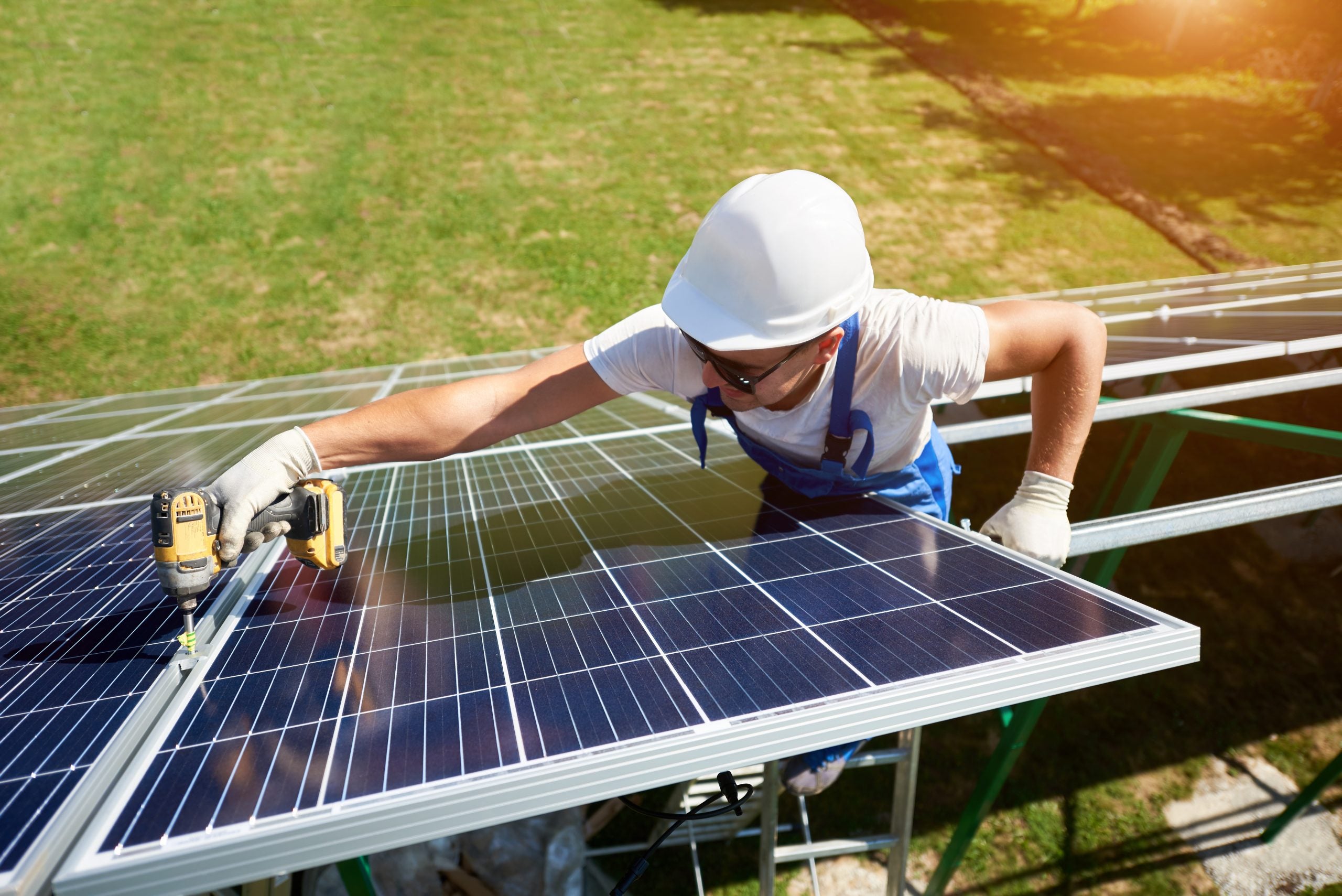
Professional worker installing solar panels. Shutterstock.
(This post was written by EDF Vice President for Political and Government Affairs Joanna Slaney)
Two key U.S. House committees this week advanced a tax plan that effectively ends incentives for clean energy and electric vehicles, undermining an American-made energy boom while raising costs for businesses and families and threatening people’s health with more pollution.
The draft legislation also includes repeals of the U.S. Environmental Protection Agency’s tailpipe pollution standards and the U.S. Department of Energy’s more protective fuel economy standards for the nation’s new cars and passenger trucks – rules aimed at reducing expensive fuel use and harmful pollution while providing cleaner air.
The move is a clear abuse of the reconciliation process, which allows Congress to advance certain spending and tax bills on a simple majority vote, freeing lawmakers from the 60-vote threshold in the Senate most legislation must meet to be considered.
The Rhodium Group’s analysis finds that the bill’s cuts and incredibly burdensome restrictions on the incentives that remain amount to “a full repeal of the energy tax credits initially extended and expanded in 2022.”
Additionally, a recent Energy Innovation analysis finds that repealing the tax incentives would increase cumulative household energy costs by $32 billion over the next decade while costing the U.S. roughly 700,000 jobs. It also will add more than 530 million metric tons of climate pollution, equal to adding 116 million cars to the road.
The table below identifies how these impacts will be felt in several states.

This bill would pull the rug out from under the companies and workers, families and communities. Here’s how:
Putting the brakes on the U.S. clean energy boom. The proposal would effectively end tax credits that have catalyzed more than $600 billion in private investment since 2022, supporting hundreds of thousands of jobs nationwide — from battery plants in Arizona, wind manufacturing in Virginia and solar installation businesses across the country.
Repealing tax credits that help make cleaner vehicles more affordable and allow families to skip the gas pump. This would dramatically increase purchasing costs, reduce consumer choices and invite more pollution into communities. The draft legislation also would eliminate tax credits that expand charging infrastructure, including in rural and low-income areas.
Attempting an unprecedented use of the reconciliation process to reverse regulations for cleaner and more fuel-efficient cars. The point of budget reconciliation is to provide an expedited method for passing the budget, not for enacting policy changes by reversing rules. EPA’s standards alone will prevent more than seven billion metric tons of climate pollution from getting into our air through 2055. They will provide significant reductions in deadly particle and smog-forming pollution and will provide $13 billion in annual health benefits.
Ending tax credits that help people reduce their electricity bills and keep the lights on. The proposal would eliminate credits that help make homes more energy efficient and support the installation of clean energy, including rooftop solar and batteries. With electricity demand expected to surge — driven by data centers, manufacturing reshoring and electrification — these incentives are essential to supplying power reliably and affordably. Independent analysis shows that fully repealing the tax incentives could raise household electricity bills by as much as 20% in some states by 2026.
Eliminating loans that drive American innovation. On the chopping block is a decades-old Department of Energy program that provides loans or loan guarantees to U.S. companies working to make cleaner, more affordable energy and grow domestic manufacturing jobs. The program’s demise would make America weaker just as global competitors ramp up their own investments.
Inviting more pollution into communities by cutting grants and loans. The proposal would eliminate programs that promote healthy, thriving communities by creating jobs and reducing harmful pollution, particularly in places with too much dirty air already. These programs finance community-wide solar power and energy storage, cleaner heavy-duty trucks at ports and air pollution monitoring to help protect community health.
Delaying a fee for wasteful methane releases. The bill would give the largest polluting oil and gas companies a 10-year reprieve from paying a fee on wasteful methane pollution, which would cause irreversible damage to our climate and public health. Methane has more than 80 times the warming power of carbon dioxide over the first 20 years after it reaches the atmosphere, and cutting methane is the quickest way to slow the rate of climate change in the near term.
The bill is expected to move to two more committees, the House Budget Committee on Friday and the House Rules Committee next week, before going to the full House of Representatives.









